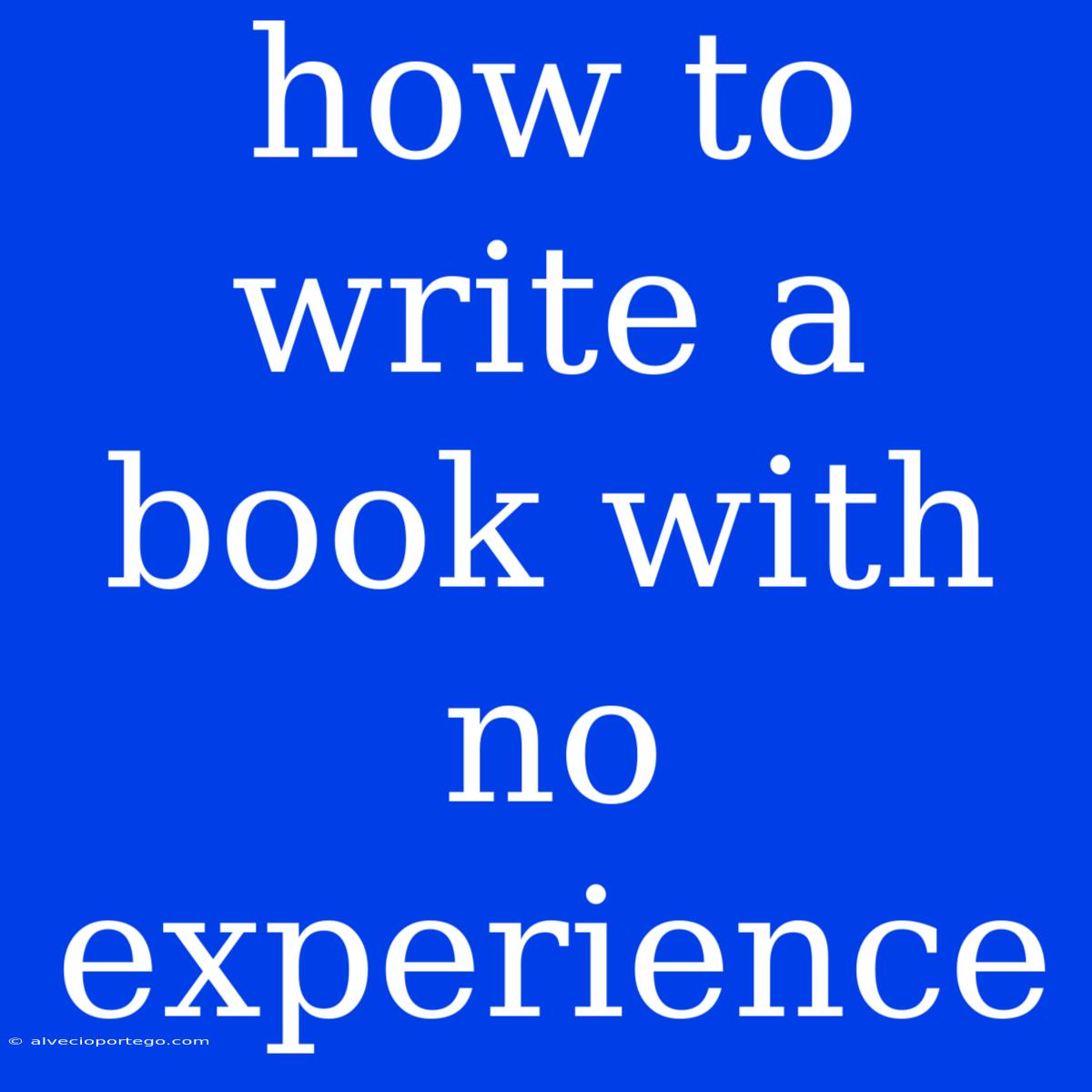How to Write a Book with No Experience: A Beginner's Guide to Crafting Your Story
Dreaming of seeing your name on a book cover? Don't let a lack of experience hold you back! Writing a book can be a challenging but incredibly rewarding journey, even if you've never penned a novel before. This guide will equip you with the tools and strategies to turn your dream into a reality.
1. Find Your Story
- Brainstorm: Explore your passions, fears, and dreams. What stories have always fascinated you? What characters resonate with you?
- Tap into your experiences: Your life is a treasure trove of stories. Draw inspiration from your travels, relationships, jobs, or even everyday observations.
- Think about the "what if": What if your favorite book character lived in a different world? What if your pet could talk? Let your imagination run wild!
- Don't be afraid of cliché: Even familiar tropes can be revitalized with your unique perspective and voice.
2. Craft Your Characters
- Give them depth: Avoid creating stereotypical characters. Provide them with motivations, flaws, and compelling backstories that will make them relatable and engaging.
- Make them unique: Think about their appearance, mannerisms, and how they interact with the world around them.
- Develop their relationships: How do your characters interact with each other? Explore their conflicts, bonds, and evolving dynamics.
3. Build Your World
- Define your setting: Where and when does your story take place? Research historical periods, geographical locations, or create your own fictional universe.
- Establish rules: What are the laws of physics, magic, or societal structures in your world? Clearly defining these rules will provide a consistent framework for your story.
- Create a vivid atmosphere: Use descriptive language to bring your world to life. Engage the reader's senses with sights, sounds, smells, and textures.
4. Plot Your Path
- Start with a basic outline: This doesn't have to be a detailed plan, but a loose structure will help guide your writing.
- Consider the "three-act structure": This classic approach divides your story into a beginning, rising action, climax, falling action, and resolution.
- Don't be afraid to deviate: Be flexible! Allow your story to organically evolve as you write, but remember to keep your overall direction in mind.
5. Write!
- Don't get hung up on perfection: Your first draft will be messy, and that's okay! Focus on getting the story down on paper.
- Set realistic goals: Aim to write a set amount of words each day, even if it's just a few paragraphs. Consistency is key!
- Find your writing routine: Experiment with different times and locations until you discover what works best for you.
- Take breaks: Step away from your writing when you feel stuck or frustrated. Fresh eyes can bring new insights.
6. Revise and Edit
- Read your work out loud: This will help you identify awkward phrasing and inconsistencies.
- Seek feedback: Share your writing with trusted readers and solicit their honest opinions.
- Don't be afraid to cut: Sometimes, the best editing involves removing unnecessary details or scenes.
- Pay attention to grammar and mechanics: Ensure your writing is free of errors that can distract from your story.
7. Find Your Publishing Path
- Self-publishing: This route gives you complete control over your book but requires you to handle all aspects of production and marketing.
- Traditional publishing: Submit your manuscript to literary agents and publishers who will guide you through the process.
- Hybrid publishing: This combines elements of self- and traditional publishing, offering flexibility and support.
Remember: Writing a book is a journey, not a race. Be patient with yourself, embrace the process, and enjoy the adventure!

